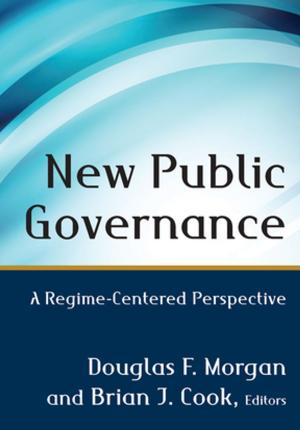Leadership Paradoxes
Rethinking Leadership for an Uncertain World
Business & Finance, Management & Leadership, Leadership| Author: | ISBN: | 9781317614685 | |
| Publisher: | Taylor and Francis | Publication: | February 5, 2016 |
| Imprint: | Routledge | Language: | English |
| Author: | |
| ISBN: | 9781317614685 |
| Publisher: | Taylor and Francis |
| Publication: | February 5, 2016 |
| Imprint: | Routledge |
| Language: | English |
Leadership Paradoxes was shortlisted for the 2017 Management Book of the Year, an industry book award organised by the Chartered Management Institute and the British Library.
********************************************
Leadership remains one of the most sought-after qualities in contemporary society, yet after centuries of research, education and debate it remains just as elusive as ever. Leadership Paradoxes: Rethinking Leadership for an Uncertain World argues that the key to understanding and enhancing leadership education, theory and practice lies in the recognition of its paradoxical tendencies.
Drawing on the expertise of an international team of leadership scholars and practitioners, this book examines common leadership paradoxes and challenges faced by leaders — and shows how they can be reconceived as opportunities to be embraced, rather than problems to be solved. Readers will benefit from reflective questions at the end of each chapter, plus a companion website at www.leadershipparadoxes.com offering further material and a forum for discussion.
Leadership Paradoxes will be valuable supplementary reading for students of leadership at advanced undergraduate, postgraduate, and post-experience level, as well as professionals seeking to improve their practice.
Leadership Paradoxes was shortlisted for the 2017 Management Book of the Year, an industry book award organised by the Chartered Management Institute and the British Library.
********************************************
Leadership remains one of the most sought-after qualities in contemporary society, yet after centuries of research, education and debate it remains just as elusive as ever. Leadership Paradoxes: Rethinking Leadership for an Uncertain World argues that the key to understanding and enhancing leadership education, theory and practice lies in the recognition of its paradoxical tendencies.
Drawing on the expertise of an international team of leadership scholars and practitioners, this book examines common leadership paradoxes and challenges faced by leaders — and shows how they can be reconceived as opportunities to be embraced, rather than problems to be solved. Readers will benefit from reflective questions at the end of each chapter, plus a companion website at www.leadershipparadoxes.com offering further material and a forum for discussion.
Leadership Paradoxes will be valuable supplementary reading for students of leadership at advanced undergraduate, postgraduate, and post-experience level, as well as professionals seeking to improve their practice.















